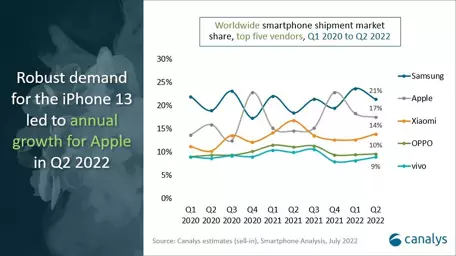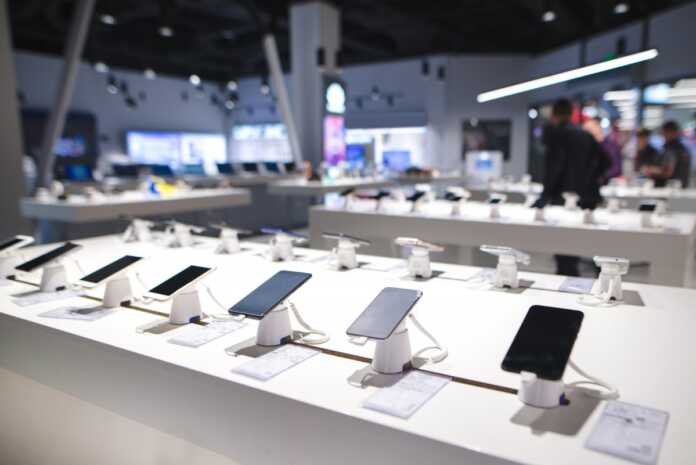In view of inflation and the economic situation, far fewer smartphones are being sold. Chinese manufacturers are losing market share.
Nine percent fewer smartphones were sold worldwide between April and June than a year earlier. Among the major manufacturers, only Samsung and Apple were able to expand their market shares in this environment, Xiaomi, Oppo and Vivo lost feathers. This emerges from the latest figures from the analysis company Canalys.
According to this, more than every fifth smartphone sold is a device from Samsung. According to preliminary figures, the South Korean group has a market share of 21 percent. A year ago it was 18 percent. Apple is displacing Xiaomi from second place and has a market share of 17 percent. Overall, less than 300 million smartphones went over the counter in the second quarter.
Rising inflation as an obstacle

According to Canalys, “economic headwinds, sluggish demand and pent-up inventories” are responsible for the significant drop in sales. In the meantime, however, the situation with the months-long component bottlenecks is easing. The manufacturers would now have to adapt their strategies quickly in order to face the changed conditions. Analyst Runar Bjørhovde believes that they should concentrate on the mid-range segment for the forthcoming new products, as consumers with a limited budget would be looking for cheaper devices for a smartphone. Toby Zhu adds that rising inflation is reducing disposable income and is therefore having a negative impact on the smartphone business.
A year ago, Canalys recorded a 12 percent year-on-year increase in sales. With a market share of 17 percent, Xiaomi came pretty close to the market leader Samsung at the time. This catch-up race is probably over for the time being. Up until two years ago, Huawei was also the second-largest smartphone maker, but after US government sanctions, the Chinese company lost access to Western technologies and soon fell out of the top 5. Apple’s year-on-year growth and the associated advance to second place is now based on “robust demand” for the iPhone 13, according to Canalys.














